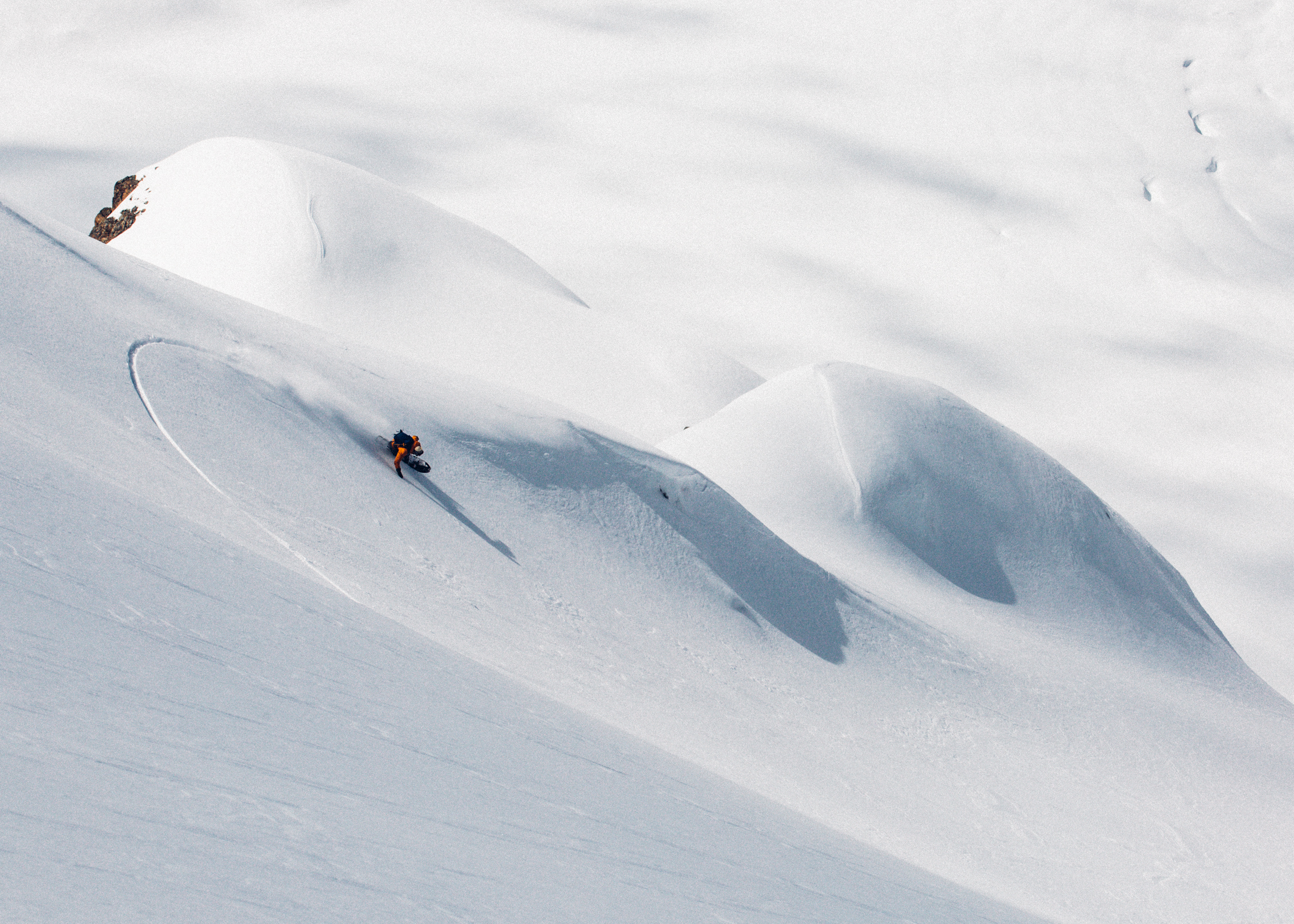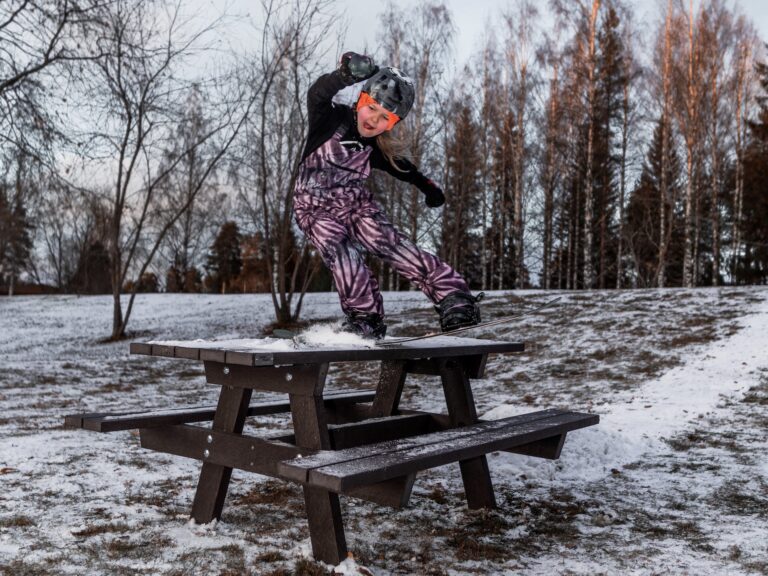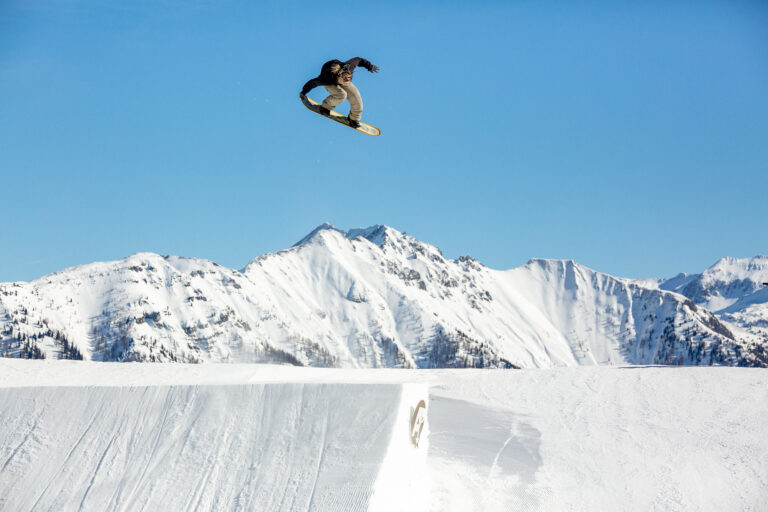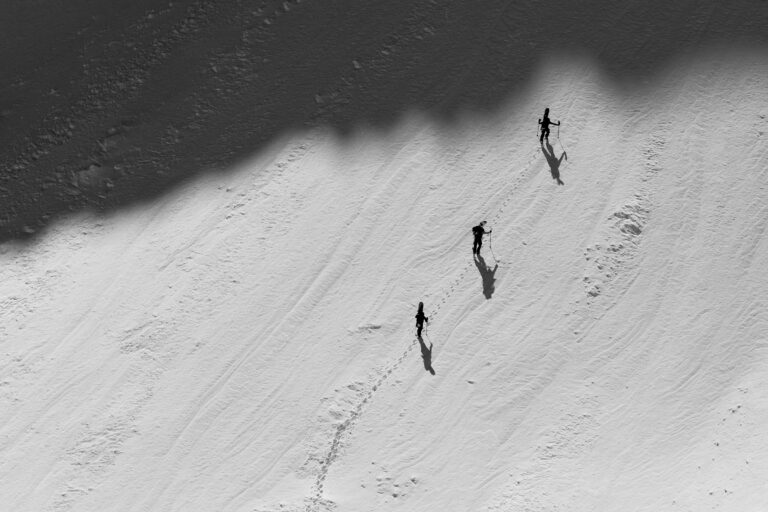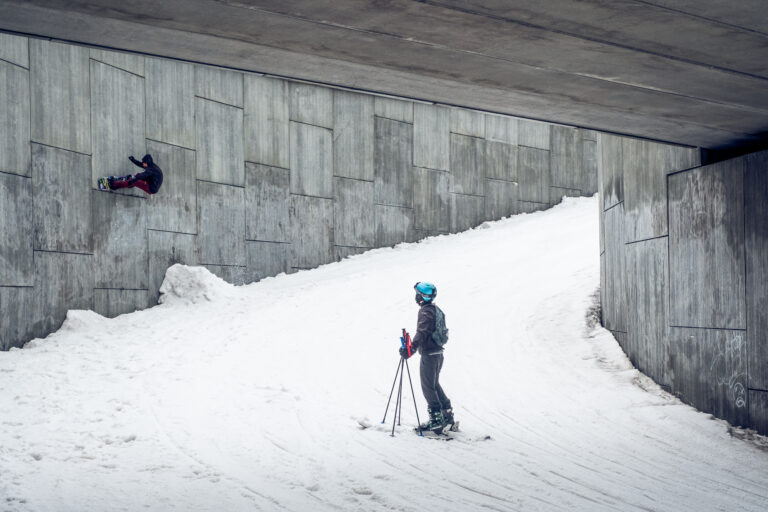Above: Nicholas Wolken PC- Ed Blomfield
In 2018, Patagonia changed their mission statement to reflect the urgency of the climate crisis.
“We’re in business to save our home planet.”
It is an impressively blunt challenge, not least for a company that – however much it seeks to minimise its own environmental footprint – ultimately manufactures a hell of a lot of stuff. Can capitalism be harnessed to fix the problem it created, or are we destined to live out a real-life Mad Max dystopia in the not-too-distant future?
“The idea of saving our home planet just made me feel sick to my stomach – it’s so overwhelming”
One thing’s for sure, the company founded by climber Yvon Chouinard over 45 years ago is not shying from the awkward questions – and through countless workshops and initiatives, it encourages its ambassadors, staff and customers to help find the answers.
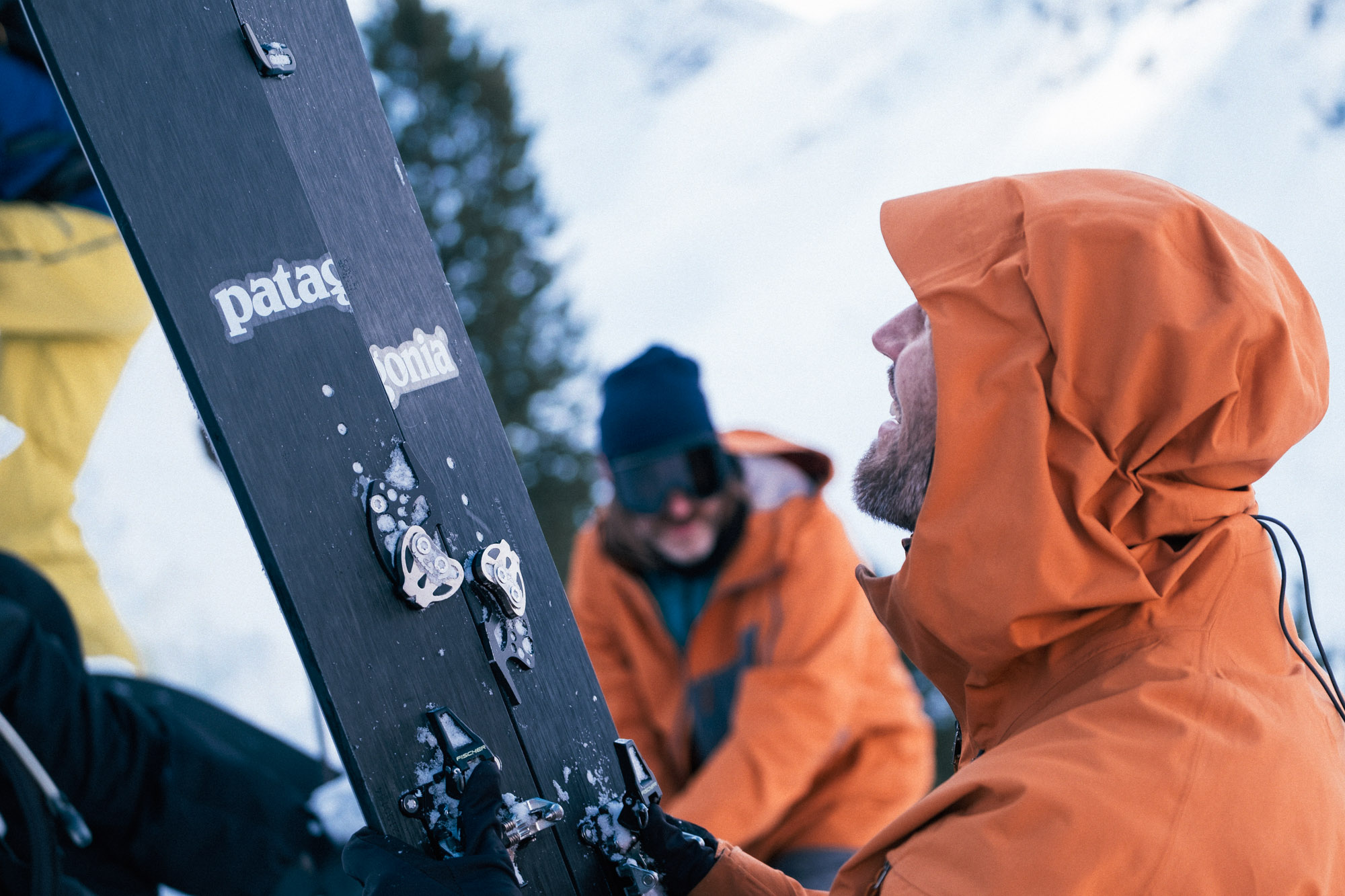
Nicholas Wolken has been a rider on the Patagonia snow team for a few seasons, but like many of us he admits to feeling overwhelmed in the face of such a massive, global challenge. His new film, Turn of Mind, was a way for him to explore the issue, drawing on his training as a psychologist to confront, honestly, our relationship with nature and what each of us can do to contribute to the solution.
We caught up with him at a screening in Innsbruck to find out more.




